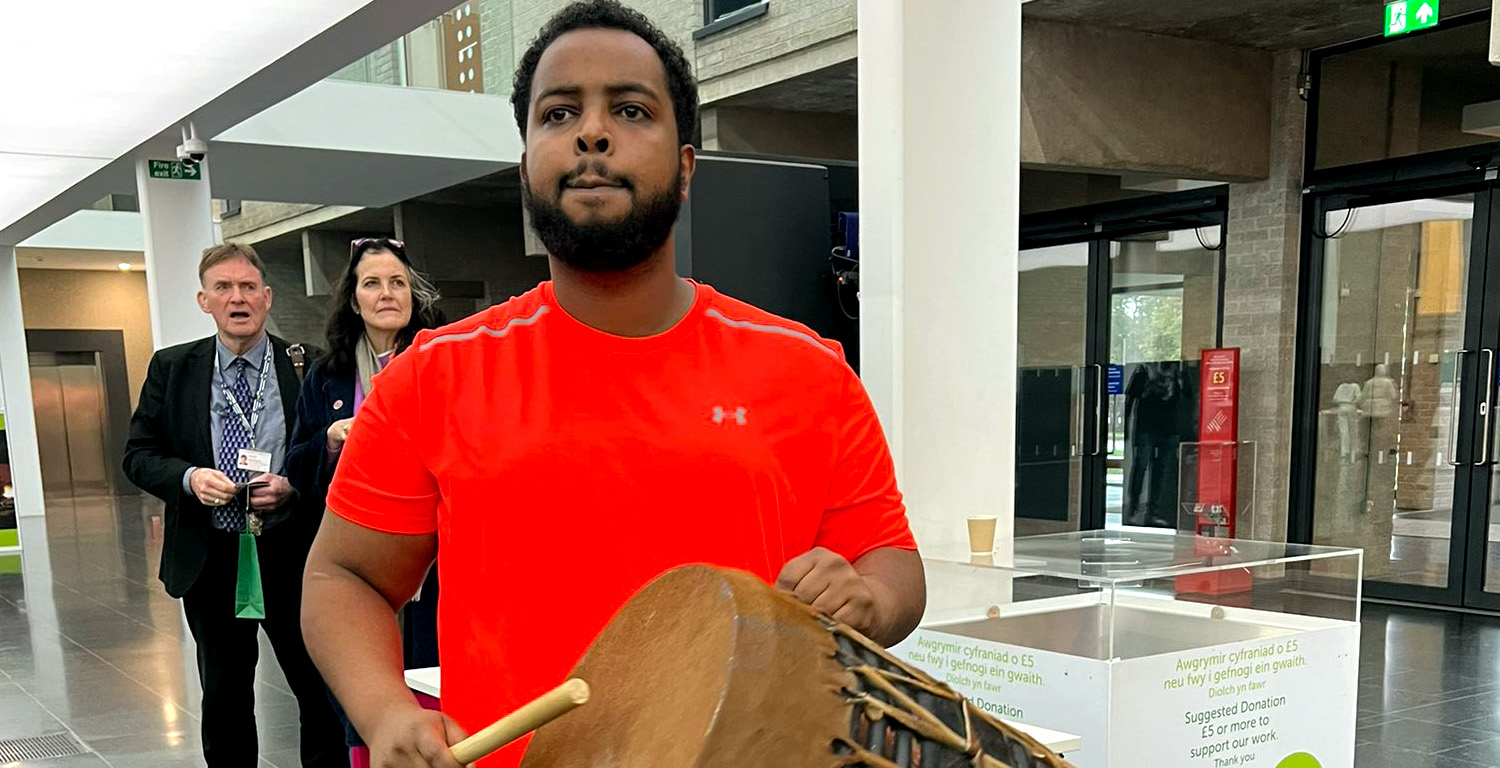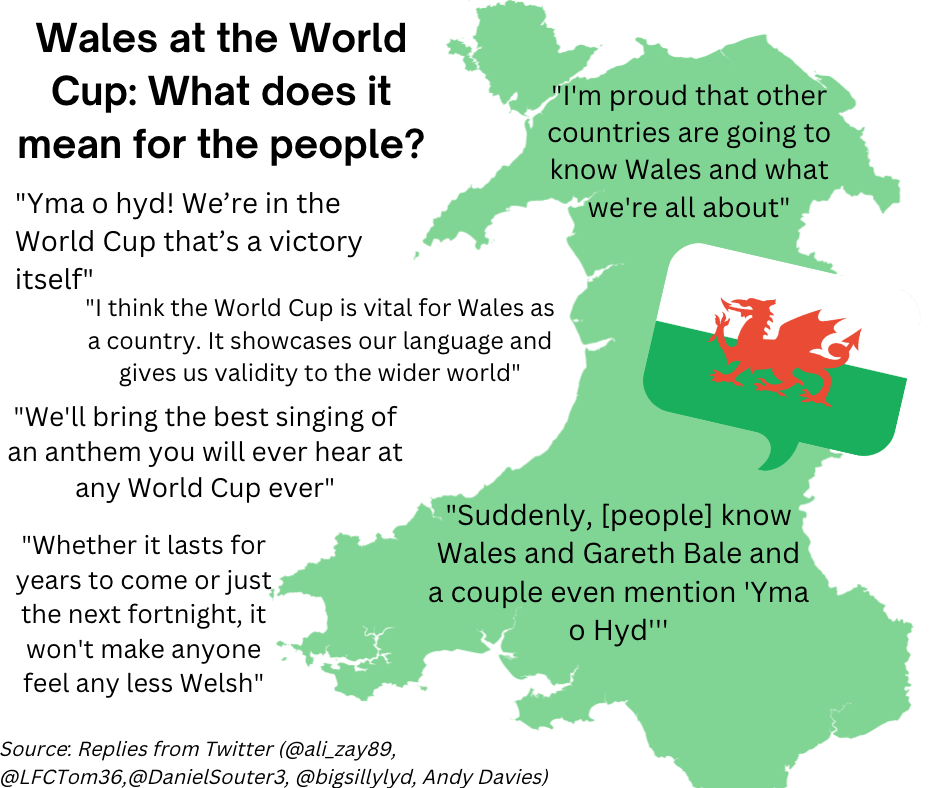Welsh and non-Welsh speakers alike are embracing the language as part of their Welsh identity as Wales’s World Cup campaign puts Cymru on the world stage

A Welsh language protest song used as the official anthem for Wales’ World Cup campaign has highlighted the importance of the language to Welsh identity.
The connection was illustrated during an interview in Cardiff, when Dafydd Iwan, who wrote Yma O Hyd, was interrupted by a fan of the song.
Ali Goolyad, an artist from Butetown, stopped the interview to express his connection to the song, despite not being a Welsh speaker.
I’m proud to be Welsh and Somali, we share a lot of the same values
“Everyone says: ‘You’re Somali, how do you like that?’” Goolyad, 31, states in the video. “I say: connect with the lyrics.” The video from S4C received over 2,700 likes on Twitter.
Speaking on what the song and language meant to his identity, Goolyad said “I’m proud to be part Welsh and Somali, we share a lot of the same values and traditions.”
The Butetown artist said he does not currently speak Welsh, but considers the language a strong part of his Welsh identity, and has been learning via the Duolingo app.
Data from Duolingo from the past two years has shown Welsh continues to be one of the fastest growing languages in the UK.
Yma O Hyd, released by Dafydd Iwan and Ar Lôg in 1983, is about the adversity the Welsh language and people have experienced across centuries.
In an interview with ITV News, Iwan stated the Welsh language “has always belonged to us all”, and Yma O Hyd has connected Welsh and non-Welsh speakers alike.
Goolyad celebrated Wales’ connection with Somalia during Welsh Somali Heritage Day at St Fagans museum, which highlighted the intersectional and intergenerational perspectives on heritage and culture in Wales and Somaliland.
Cardiff has one of the longest established Somali communities in the UK, dating back to the 1870s. It is estimated that over 8,000 Somalis currently live across Cardiff, Newport and Swansea, making them the largest ethnic minority community in Wales.

